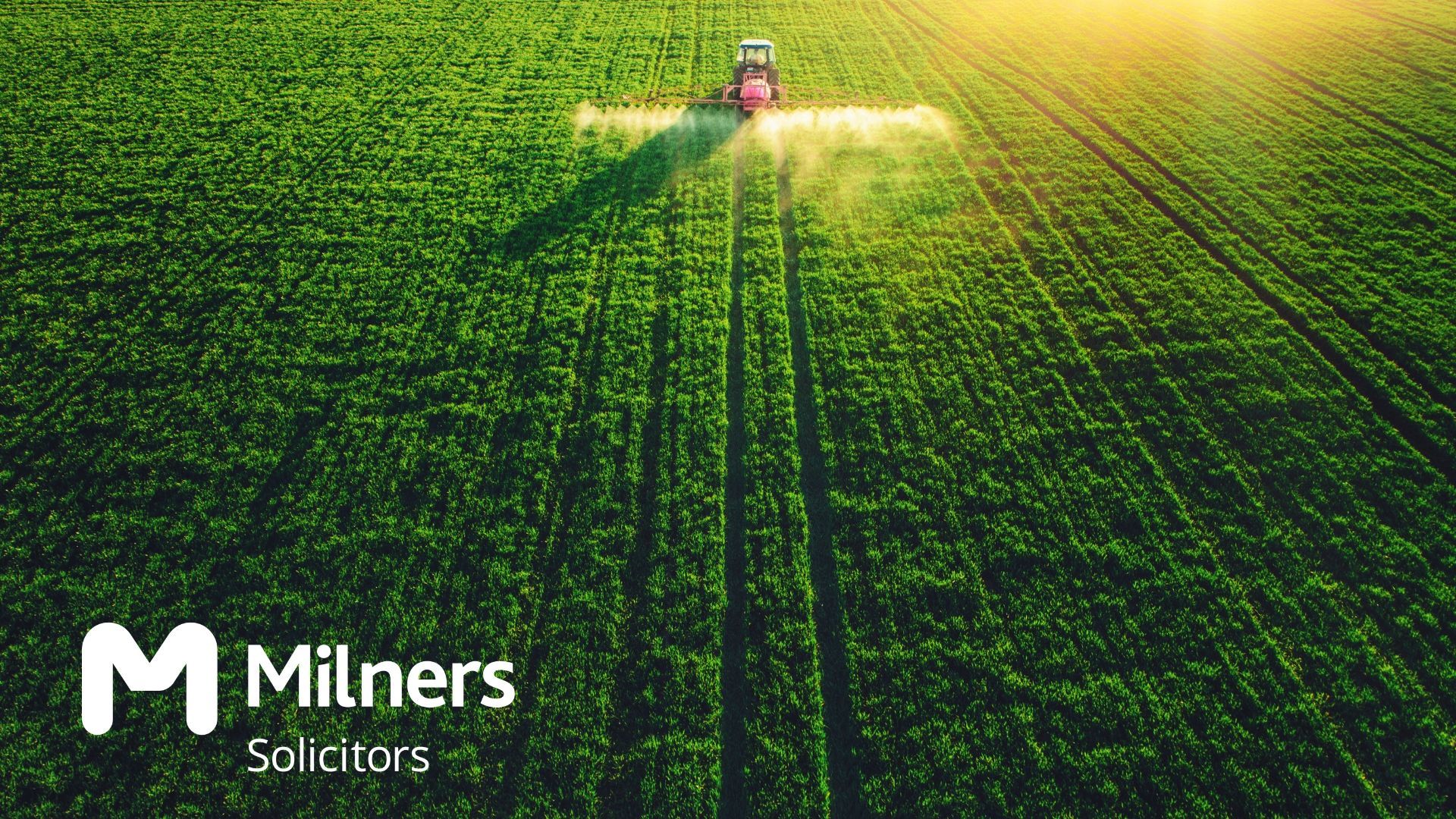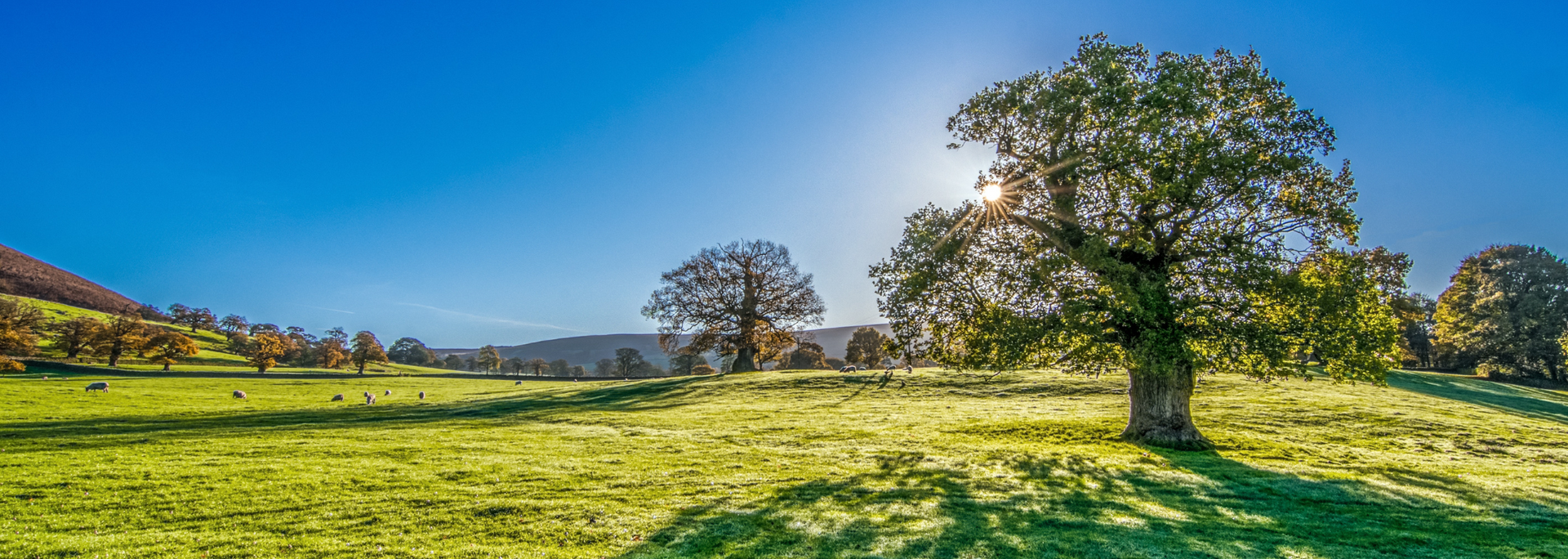Biodiversity net gain for farmers becomes mandatory in England in January 2024. Find out what these legal considerations could mean for you.

Biodiversity net gain (BNG) is a strategy that forms part of the government's Environment Act (2021). It is, the government claims, "fundamental in helping the country meet [its] target to halt the decline in species abundance by 2030 while helping create more beautiful communities and deliver new homes".
It aims to ensure that nature is left in a better state than it was found, mitigating and compensating for the deleterious effects of new housing, industrial and commercial developments.
In England, BNG will be legally required for all new
planning permissions at the end of January 2024. From this point on, developers must show they will deliver at least 10% BNG before being granted permission by the local planning authority (LPA).
If a developer can't achieve this on-site, they must pay other landowners to create and improve habitats for them. This second option is known as off-site BNG. If they can't achieve this either, their final option is to purchase a biodiversity credit from the government.
It's a complex issue that has practical consequences for
farmers in England. In this article, we take a look at what these new legal requirements could mean for you.
What is BNG meant to achieve?
At the moment, the ecological impacts of developments are assessed during the planning application process. Developers must show how they will avoid, mitigate and compensate for environmental harms. The problem is that these steps aren't quantifiable. It's difficult to show exactly what biodiversity has been lost or gained.
BNG, by contrast, has been designed to provide a transparent metric for ecological outcomes.
It also asks more of developers. Rather than having to demonstrate "no net loss" of biodiversity, they must deliver a net increase.
The end goal of the scheme is to help halt species decline, create habitats and conserve nature.
How do you measure biodiversity?
Under BNG, biodiversity is measured in standardised "biodiversity units".
Imagine a habitat. It could be grassland, hedgerows, a lake, an area of woodland or a watercourse. The size, quality, location and type of the habitat are all translated into units by an ecologist.

A proposed development can harm or improve these units. The statutory biodiversity metric will be used to measure two things: first, how many units a habitat contains before development and second, how many units need to be replaced to hit 10% BNG.
Major developments must use this metric from January 2024. Small sites will be legally obliged to use the small sites metric (SSM) from April 2024.
How can farmers achieve BNG?
There are three ways for
farmers to achieve BNG: on-site, off-site and through the purchase of biodiversity credits. This last option is presented as a last resort.
"On-site" BNG means enhancing and restoring biodiversity within the red-line boundary of your development site.
"Off-site" means purchasing off-site biodiversity units. For instance, a farm could make a profit by selling a biodiversity unit to a developer. The developer is thereby investing in biodiversity in another part of the country. This off-site investment can be combined with on-site gains to achieve 10% BNG.
If the necessary net gain can't be achieved through a combination of on-site and off-site improvements, you have to buy statutory biodiversity credits from the government. This money, it's claimed, will be funnelled into biodiversity projects.
It's important to note that BNG can't be achieved if the development means the loss of an irreplaceable habitat.
What do farmers have to do?
There are three main things a farmer has to do to comply with the new BNG mandate.
- Register a biodiversity gain site on the government's register if paying a landowner or landowners to create or improve their habitats.
- Consult an ecologist. They will first measure the biodiversity units of existing habitats on the farmer's land using the biodiversity metric and then offer suggestions as to how to increase biodiversity. The government doesn't define "ecologist". However, it does say that the LPA can reject your calculations if they weren't crunched by a competent individual.
- Sign a legal agreement with the local authority demonstrating how biodiversity will be increased over a minimum of 30 years.
How do statutory biodiversity credits work?
Statutory biodiversity credits are a last resort when on-site and off-site biodiversity gain isn't possible.
Confusingly, the terms "biodiversity unit" and "biodiversity credit" are sometimes used interchangeably. However, in the context of BNG, a unit is a measurement of biodiversity, while a credit is something that can be bought from the Secretary of State.
The revenue raised by these credits will, it's claimed, be reinvested in biodiversity.
What are some criticisms of BNG?
The main criticism is that BNG will make developments more expensive for farmers. But it's also been accused of creating perverse incentives to destroy green spaces.
This could be because a farmer deliberately clears habitats to reduce the number of pre-development biodiversity units and thus lower development costs. Or it could be that developers can compensate for the destruction of green spaces by improving the ecological quality of the remaining, reduced habitats. This was the finding of
Green Alliance when BNG was first trialled.
Another criticism is that the metric is only as good as the data that goes in. It's also not transparent to farmers and needs to be interpreted by ecologists.
Conclusion
BNG will be a legal requirement in England from January 2024. While the principles behind it are easy to understand, the metric used is not, and you may wonder how the costs of your development and tax planning will be affected.
If you need clarity on a legal matter relating to BNG, it can be prudent to get in touch with an expert
agricultural lawyer. They'll be able to simplify the complexities for you and give you a better idea of where you stand.
Are you looking for legal advice relating to BNG or another environmental issue?
Get in touch with Milners for a free, no-obligation consultation.
![Judgment has been handed down this week in Transwaste Recycling and Aggregates Ltd [2024] EWHC 330 (](https://lirp.cdn-website.com/8f80b851/dms3rep/multi/opt/o+and+s-1920w.JPG)
Pontefract Office
9A High Street
Upton, Pontefract
West Yorkshire
WF9 1HR
Darlington Office
Close Thornton Solicitors
31 Houndgate
Darlington
DL1 5RH
Authorised and regulated by the Solicitors Regulation Authority – Milners, SRA # 52317 | VAT number: 170144301
All Rights Reserved | Milners Solicitors
Our branches
This is a paragraph. Writing in paragraphs lets visitors find what they are looking for quickly and easily.
This is a paragraph. Writing in paragraphs lets visitors find what they are looking for quickly and easily.
This is a paragraph. Writing in paragraphs lets visitors find what they are looking for quickly and easily.
This is a paragraph. Writing in paragraphs lets visitors find what they are looking for quickly and easily.
This is a paragraph. Writing in paragraphs lets visitors find what they are looking for quickly and easily.
Harrogate Office
11A Princes Square
Harrogate
North Yorkshire
HG1 1ND
01423 530 103
Darlington Office
Close Thornton Solicitors
31 Houndgate
Darlington
DL1 5RH
01325 466461
Pontefract Office
9A High Street
Upton, Pontefract
West Yorkshire
WF9 1HR
01977 644 864


Authorised and regulated by the SRA, SRA ID 52317
Get tips from our business and personal law legal experts. Delivered to your inbox each week.










